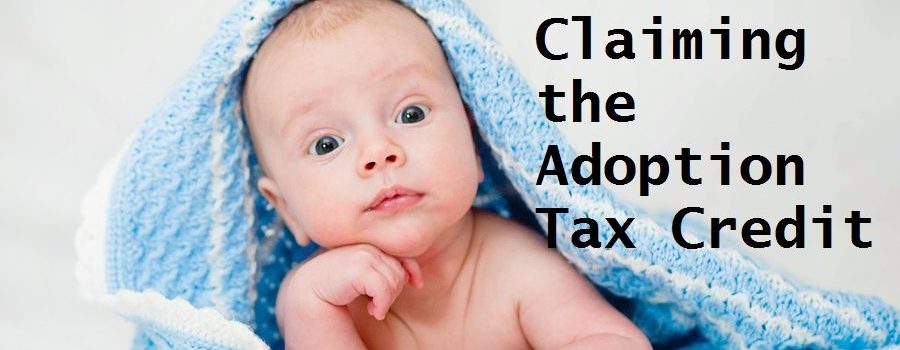
Adoption Tax Credit
Adoption tax credit is a provision in the United States tax code that provides tax relief to adoptive parents who have adopted a child. The tax credit is intended to help offset the costs associated with the adoption process, such as fees paid to adoption agencies, legal fees, and travel expenses. The amount of the tax credit varies depending on the year of adoption, the adoption expenses incurred, and the adoptive parents’ income. The adoption tax credit was first introduced in 1997 and has been modified several times since then. The credit is non-refundable, meaning that if the amount of the credit exceeds the adoptive parents’ tax liability, they cannot receive a refund for the excess amount. However, any unused credit can be carried forward for up to five years. The adoption tax credit is an important financial assistance for many adoptive families, helping them to provide a stable and loving home for a child in need.
How Adoption Tax Credit Work?
The adoption tax credit is a tax provision that allows adoptive parents to reduce their federal income tax liability by a certain amount based on their qualified adoption expenses. The credit is calculated by adding up all of the eligible expenses paid by the adoptive parents during the adoption process and then subtracting any reimbursement received for those expenses. The remaining amount is the adoption tax credit.
For the tax year 2021, the maximum adoption tax credit is $14,440 per child. However, the actual amount of the credit depends on several factors, including the year of adoption, the adoptive parents’ income, and the amount of qualified adoption expenses they incurred.
The adoption tax credit is a non-refundable credit, which means that if the credit exceeds the adoptive parents’ tax liability, they cannot receive a refund for the excess amount. However, any unused credit can be carried forward for up to five years.
To claim the adoption tax credit, adoptive parents must file Form 8839, Qualified Adoption Expenses, with their federal income tax return. The credit is subject to a phase-out based on the adoptive parents’ modified adjusted gross income (MAGI), which means that the credit gradually reduces as the MAGI increases until it is completely phased out.
Overall, the adoption tax credit is an important financial assistance for many adoptive families, helping them to offset the costs associated with the adoption process and providing a stable and loving home for a child in need.
How Can You Claim the Adoption Tax Credit?
To claim the adoption tax credit, adoptive parents must file Form 8839, Qualified Adoption Expenses, with their federal income tax return. Here are the steps to claim the adoption tax credit:
● Determine if you are eligible: To be eligible for the adoption tax credit, you must have adopted a child who is under the age of 18 or who is physically or mentally unable to care for themselves. The credit is also available for adoptions of children with special needs, regardless of whether the adoptive parents have incurred any adoption expenses.
● Calculate your adoption expenses: Add up all the expenses you have paid for the adoption process, such as adoption fees, court costs, and travel expenses. Keep in mind that there are some expenses that are not eligible for the credit, such as expenses related to surrogacy or adoption of a spouse’s child.
● Determine the amount of your credit: The amount of the adoption tax credit varies depending on the year of adoption, the adoption expenses incurred, and the adoptive parents’ income. For the tax year 2021, the maximum adoption tax credit is $14,440 per child.
● Complete Form 8839: Fill out Form 8839, Qualified Adoption Expenses, to claim the adoption tax credit. Enter the amount of your adoption expenses and calculate the amount of your credit.
● Attach Form 8839 to your tax return: Attach Form 8839 to your federal income tax return and submit it to the Internal Revenue Service (IRS).
Keep in mind that the adoption tax credit is non-refundable, meaning that if the amount of the credit exceeds your tax liability, you cannot receive a refund for the excess amount. However, any unused credit can be carried forward for up to five years.
Conclusion
The adoption tax credit is an important financial assistance for adoptive families in the United States. It provides a tax credit to offset the costs associated with the adoption process, such as adoption fees, legal fees, and travel expenses. The credit is calculated based on the eligible adoption expenses paid by the adoptive parents, and the maximum amount for the tax year 2021 is $14,440 per child.
To claim the adoption tax credit, adoptive parents must file Form 8839, Qualified Adoption Expenses, with their federal income tax return. The credit is subject to a phase-out based on the adoptive parents’ modified adjusted gross income (MAGI).
While the adoption tax credit is a non-refundable credit, any unused credit can be carried forward for up to five years. The adoption tax credit helps many adoptive families provide a stable and loving home for a child in need, and it serves as an important financial assistance for the adoption process.
